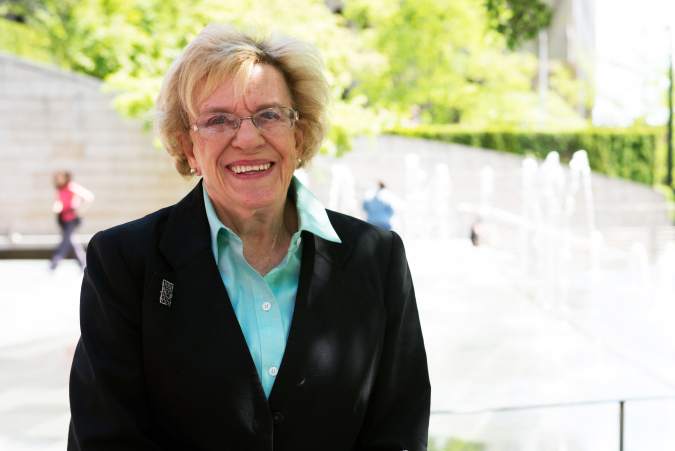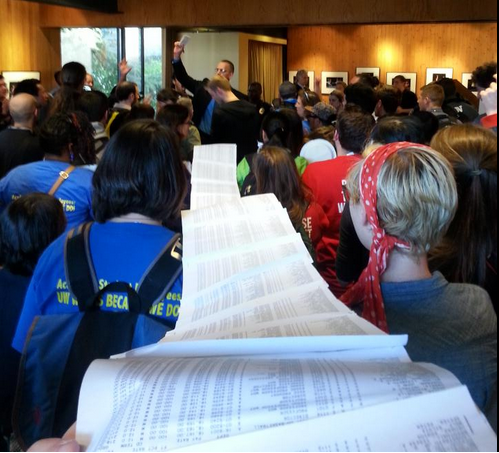Secretary of State John Kerry stopped in Renton Tuesday to promote the Trans-Pacific Partnership (TPP), an 11-country free-trade agreement that if approved would be the largest in U.S. history, with an outsized impact on cities that trade heavily with Asia—for instance, Seattle. The pact is arousing so much controversy that the AP reported there were concerns among local officials that the Shell Oil protesters might turn their ire toward Kerry (a la WTO 1999) when he arrived. Critics say the TPP would give more power to multinational corporations and hurt labor, and are also dismayed that the document’s 27 chapters, written in complete seclusion, have yet to be shared in full with the American public. With Kerry stumping in our fair city—which, as it happened, barely noticed he was here—here’s a quick primer on where people stand on this agreement.
The Obama administration In Oregon earlier this month, President Barack Obama noted that many of the TPP’s critics are from his own party, most notably liberal lion Sen. Elizabeth Warren. In response to these critics, he said simply, “My dearest friends are wrong.” “Typically they’re my friends, coming from my party, and they’re my fellow travelers on minimum wage and on job training and on clean energy. On every progressive issue, they’re right there with me. And then on this one, they’re, like, whooping on me,” he said. In the lighthearted speech, Obama made sure to call out several Oregonian businesses to illustrate that the TPP does indeed support small businesses, contrary to anti-TPP talking points.
Our senators While not as strongly supportive as Obama, both of our U.S. Senators, Democrats Maria Cantwell and Patty Murray, back the TPP because trade is an integral part of Washington state’s economy, which they say the deal would support. “Approximately one-third of Washington exports already go to countries involved in the ongoing Trans-Pacific Partnership negotiations, which could eventually knock down barriers to many important, growing markets across the globe,” Murray said during a speech at the Washington Council on International Trade (WCIT) Conference in November.
Environmental groups Local environmental activist groups, like the Sierra Club in Seattle, have been vocal with their concerns over the TPP. The group claims the agreement would smooth the way for large-scale liquefied natural-gas exports, putting additional pressure on the U.S. to frack in order to satisfy foreign markets; give more rights to the fossil-fuel industry; and place new limits on climate and environment regulations. The Sierra Club calls the TPP’s failures “broad and extensive,” pleading for “a new model of trade that protects communities and the environment.” E
news@seattleweekly.com







